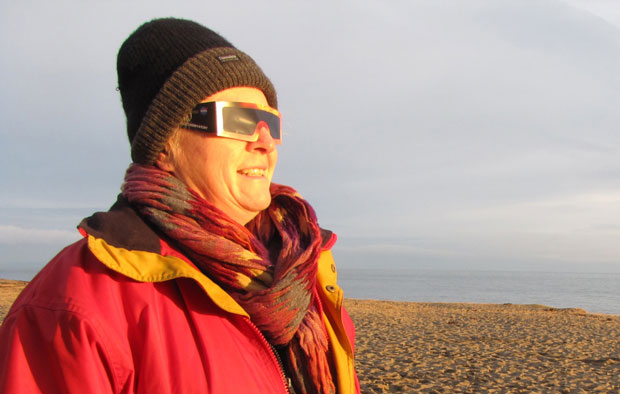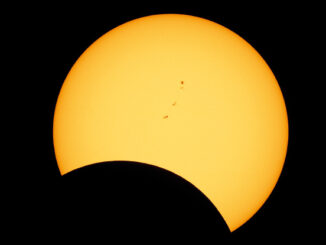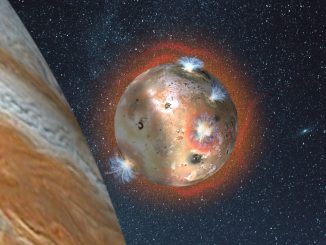• DO NOT look at the Sun with your naked eyes – the Sun is so bright that it will damage your eyesight, perhaps permanently.
• DO NOT attempt to look at the Sun through a normal telescope or binoculars – a single glance at the Sun’s focused light through the eyepiece could be enough to permanently blind you.
• DO NOT try to look at the Sun through cloud or fog – enough harmful light will still pass through to damage your eyes.
• DO NOT use sunglasses, smoked glass or welder’s glasses to look at the Sun – these DO NOT cut out the harmful ultraviolet and infrared light from the Sun that can do the real damage.
• DO NOT use camera film/negatives – these are no protection against the hash light of the Sun.
• DO NOT attempt to look at the Sun through transparent sweet wrappers, or foil. They DO NOT block enough of the Sun’s light to prevent you from damaging your eyesight.
• DO NOT try to observe the eclipse by reflecting the Sun off a mirror, a CD, water in a river or even a puddle. The Sun’s light will still be too strong.
• DO NOT combine specialist solar glasses with looking through binoculars or a telescope – the heat from the focused sunlight will melt through the glasses
• DO NOT use solar filters that come as eyepieces for your telescope – all that focused light can cause the eyepiece to crack, letting through harmful amounts of sunlight that will blind you.
• DO NOT use specialist eclipses glasses or Mylar film that has been damaged, either scratched or has holes. This will render them useless and result in you damaging your eyesight.
• DO NOT leave the finderscope of your telescope uncovered if you are using your telescope to project an image of the eclipse – small children can accidentally look through it.
• DO use dedicated eclipse glasses made of Mylar film. If purchasing solar glasses, check that they are CE approved and display the CE kite mark.
• DO use eclipse glasses sparingly – continuous use can potentially see them damaged from the Sun’s heat.
• DO use safe methods of observing the eclipse, such as projection through a telescope, or pinhole cameras. These are the safest ways to view the eclipse.
• DO use specialist solar telescopes such as those manufactured by companies such as Lunt and Coronado.
• DO supervise children at all times.
And finally, DO enjoy the eclipse safely!




